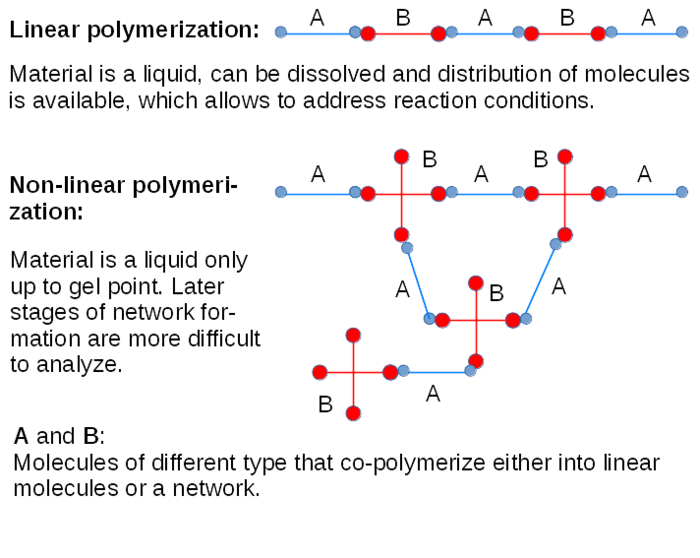Linear polymerization as a tool to understand network formation
Methods: Monte Carlo simulation, statistical physics, polymer physics
Background: Elastic materials are obtained when polymer chains form a single network structure. They are widely used in different applications ranging from car tyres, to diapers, soft contact lenses, or a simple rubber band. Modern applications require detailed knowledge of the network structure, which is the consequence of the reaction conditions of the irreversible process which led to network formation. Most current experimental methods, however, allow only for indirect insight into this process. On the other hand, linear polymerization that runs under the same conditions as the corresponding network-forming reactions may be used for a detailed analysis of the reaction conditions during network formation, see figure. In this case the result is always a liquid which can be easy analyzed experimentally. The task of this master thesis is to explore the analogies and the differences between these reactions at the same conditions by computer simulations. The wider goal is to better understand the process of irreversible network formation and to gain insight in its optimization. The candidate should have some interest in statistical physics and computer simulation techniques.

Supervisor: Prof. Dr. Jens-Uwe Sommer, Dr. Michael Lang

